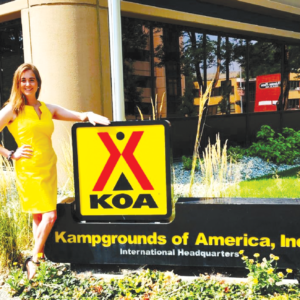Commercial
Lifeway Church Of Billings/ U.S. Roof LLC, 3100 Rimrock Rd, Com Fence/Roof/Siding $92,000 r
Downtown Billings Partnership/ Restore Masters Contracting LLC, 102 N 29th St, Com Fence/Roof/Siding, $119,436 r
Lai, Khoon Eng/ Chapel Custom Handywork Roofing Units 1-5, 3131 Iron Horse Trl, Com Fence/Roof/Siding $47,430 r
Susan L Mulkey Trust/ Chapel Custom Handywork Roofing Units 13,14 & 15,
3131 Iron Horse Trl, Com Fence/Roof/Siding, $34,410 r
PC Central Court LLC/ Wegner Homes, 78 27th St W, Com Fence/Roof/Siding, $24,690 r
McCall Homes, 6071 Northstead Ave, Com New 3+ (Multi Family), $80,000
RT Investments 25% Int/ Team Construction LLC, 1124 Shiloh Crossing Blvd, Com New Restaurant/Casino/Bar, $600,000
N A V Properites Llp, 2111 4th Ave, Com Remodel, $19,000
2316 First Ave North LLC/ T.W. Clark Construction LLC, 2316 1st Ave N, Demolition Permit Commercial, $50,000
Jordan Hill/ Cafe Rio Drive Thru. 2816 King Ave W, Com Addition, $350,000
Robson Family Trust/ Mjb Trades Inc., 206 4th St W, Com Fence/Roof/Siding, $30,000 r
513 2nd Mt Llc/ Mjb Trades Inc., 513 2nd St W, Com Fence/Roof/Siding $7,200.00
Mccall Homes/ Mccall Development, 1710-1714 St George, 1710 St George Blvd, Com New Other, $40,000
Mccall Homes/ Mccall Development, 1718-1726 St George Garages, 1718 St George Blvd, Com New Other, $60,000
Mccall Development Inc/ Mccall Development, 6117-6119 Northstead Garages, 6117 Northstead Ave, Com New Other, $40,000
Mccall Homes/ Mccall Developmen,t 1730-1734 St George, 1730 St George Blvd, Com New Other $40,000.00
Mccall Homes/ Mccall Development, 1738 St George Blvd, Com New Other $60,000
Mccall Development/ Mccall Development, 1710 St George Blvd, Com New Townhome Shell, $1,000,000
Montana Rescue Mission, 2822 Minnesota Ave, Com Plan Revision, $379,865
Montana Rescue Mission/ Dick Anderson Construction, 2822 Minnesota Ave, $80,000
Rich Romersa/ Stocky’s Custom Carpentry Llc, 960 24th St W, Com Remodel $18,800
Sysco Food Services Of Montana/ Sigsys Inc, 1509 Monad Rd, , Com Remodel, $590,083
Josephine Corner Apartments Ll/ Mccall Development, 1577 Mullowney Ln, Com Remodel, $2,500.
Residential
McCall Development Inc/ McCall Development, 6141 Northstead Ave, Res New Accessory Structure, $40,000
Diverse Construction LLC/ Diverse Construction LLC, 2035 Gleneagles Blvd, Res New Single Family, $159,432
Mike Christensen Enterprises M/ Michael Christensen Homes, 4913 Gold Creek Trl, Res New Single Family, $314,687
Had Construction/ Had Inc, El Rancho Dr, Res New Single Family, $276,349
Steve Gountanis Home Inc/ Steve Gountanis Homes Inc, 3965 Bushwood Dr, Res New Single Family, $450,000
Na/ Image Builders, 5307 N Iron Mountain Rd, Res New Single Family, $534,544
Edward Earl & Lesley L Jorden / Jorden Construction, 2979 Colonial Pl , Res New Single Family, $300,000
Mccall Development/ Mccall Development, 1710 St George Blvd, Res New Townhome, $0.00
Mccall Development/ Mccall Development, 1722 St George Blvd, Res New Townhome, $0.00
Mccall Development/ Mccall Development 1714 St George Blvd, Res New Townhome, $0.00
Mccall Development/ Mccall Development, 1718 St George Blvd, Res New Townhome, $0.00

